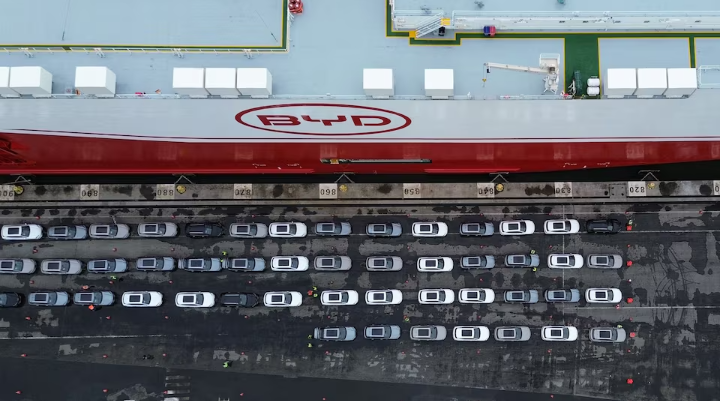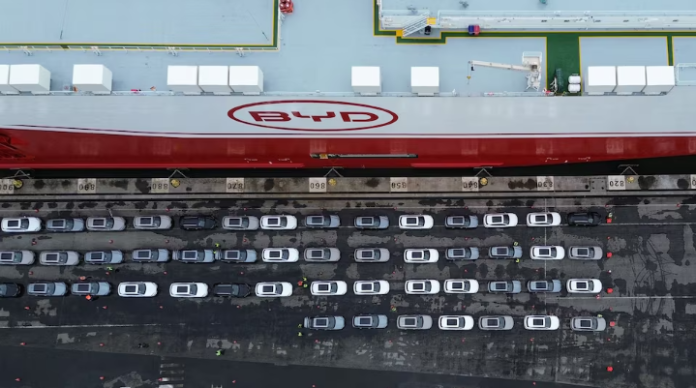In late May 2025, the world’s largest car-carrying ship, owned by BYD, docked at Brazil’s Itajai port carrying thousands of affordable electric and hybrid vehicles. For consumers, it signals more choices and lower prices. But for Brazil’s auto industry and labor force, it spells serious trouble.
BYD, a major Chinese car manufacturer, is rapidly expanding overseas. With domestic markets saturated and foreign countries like the U.S. and those in Europe imposing strict tariffs on Chinese EVs, Brazil has become a prime destination. Why? The country’s relatively low import duties and growing green transport initiatives make it an ideal target.
So far, four BYD ships have arrived in Brazil this year, delivering around 22,000 vehicles. Chinese EV imports are expected to surge nearly 40% in 2025, reaching 200,000 units — roughly 8% of Brazil’s total light-vehicle market.
This has prompted strong backlash from Brazilian automakers, unions, and industry groups. They’re urging the government to raise tariffs on EV imports from the current 10% to 35% — and sooner than originally planned.
“Other countries have shut their doors to Chinese cars. Brazil didn’t,” said Aroaldo da Silva, a labor leader at Mercedes-Benz and president of IndustriALL Brasil. “China took full advantage of that.”
Although BYD promised to invest in Brazilian manufacturing, those plans are moving slowly. A factory project in Bahia, initially celebrated, has been delayed to late 2026 amid investigations into labor practices. Meanwhile, another Chinese company, GWM, also postponed its local production.
Critics argue that while Chinese companies are flooding the market, they’re not contributing to local job creation or supply chains. As of now, over 80% of Brazil’s EV sales come from Chinese brands — raising concerns that Brazil may be giving away its auto future for short-term price cuts.

The Brazilian government is caught in a balancing act. On one side is President Lula’s commitment to protecting domestic jobs and rebuilding Brazil’s manufacturing base. On the other, there’s the urgent need to meet environmental goals ahead of the COP30 summit in November.
Brazil has the minerals — like lithium — to become a global EV battery hub. But the country still lacks the infrastructure to produce electric cars locally at scale.
Industry leaders are now calling for urgent policy reforms to protect Brazil’s economy. “We support new brands coming in,” said ANFAVEA president Igor Calvet. “But when imports start replacing local production, we must act.”
As the EV revolution heats up, Brazil finds itself in the crossfire of global trade, industrial ambition, and environmental responsibility.



